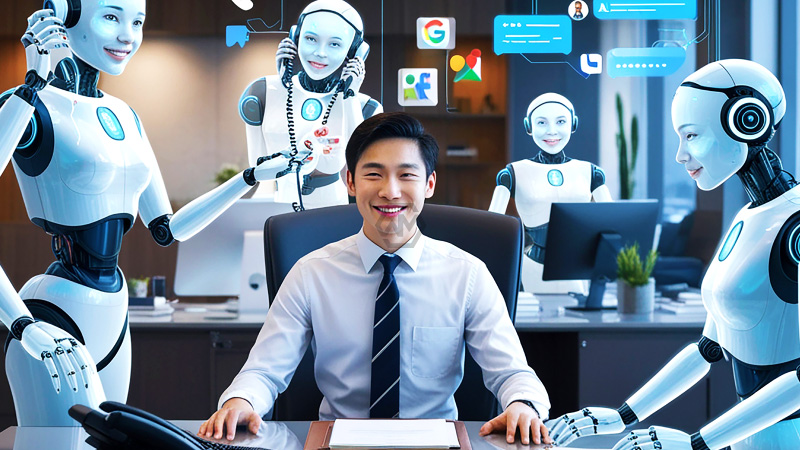- Alorica uses AI for real-time translation in 200 languages and 75 dialects.
- AI enhances customer service without reducing job numbers; Alorica continues to hire.
- AI’s impact mirrors past innovations by boosting productivity and creating new roles.
AI’s application in customer service, as demonstrated by Alorica’s new translation tool, shows how technology can revolutionize operations without displacing jobs.
By enabling representatives to interact with customers across a multitude of languages, the tool enhances service efficiency and broadens accessibility.
How AI in Customer Service Is Enhancing Jobs and Productivity
Contrary to fears of widespread job cuts, the integration of AI often results in new job opportunities and increased productivity. Historical technological advances, such as the steam engine and the internet, similarly disrupted existing job markets while generating new roles and industries. AI’s evolution suggests a similar trajectory, potentially benefiting both the economy and the workforce.
Despite concerns that AI might lead to job losses, evidence from companies like Alorica and IKEA suggests otherwise. These companies continue to expand their workforce, leveraging AI to augment rather than replace human roles. This trend aligns with historical patterns where technological progress disrupts traditional job markets but creates new opportunities and increases overall productivity.
AI’s impact on the job market resembles past technological revolutions. As AI technology advances, it’s expected to drive further innovation and efficiency, much like previous breakthroughs such as electricity and the internet. Workers may need to adapt by acquiring new skills, but the overall effect of AI could be a more dynamic and productive job market.
Incorporating AI into customer service and other fields highlights its potential to enhance productivity and create new roles rather than solely eliminating jobs. As technology evolves, it offers opportunities for businesses and workers to adapt and thrive in a changing economic landscape.
“AI’s impact on the job market resembles past technological revolutions,” underscores the idea that while AI might transform job roles and industry dynamics,



